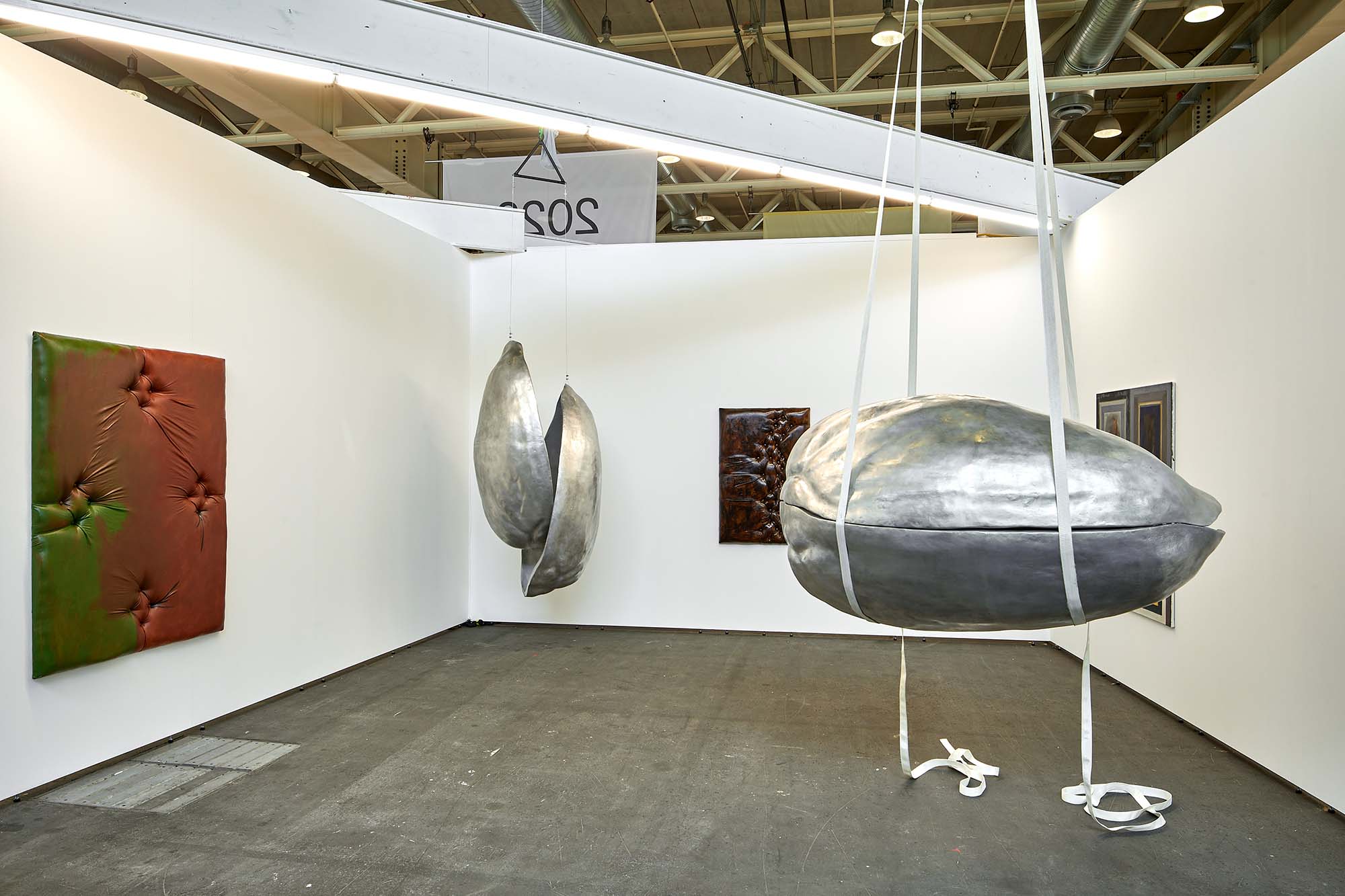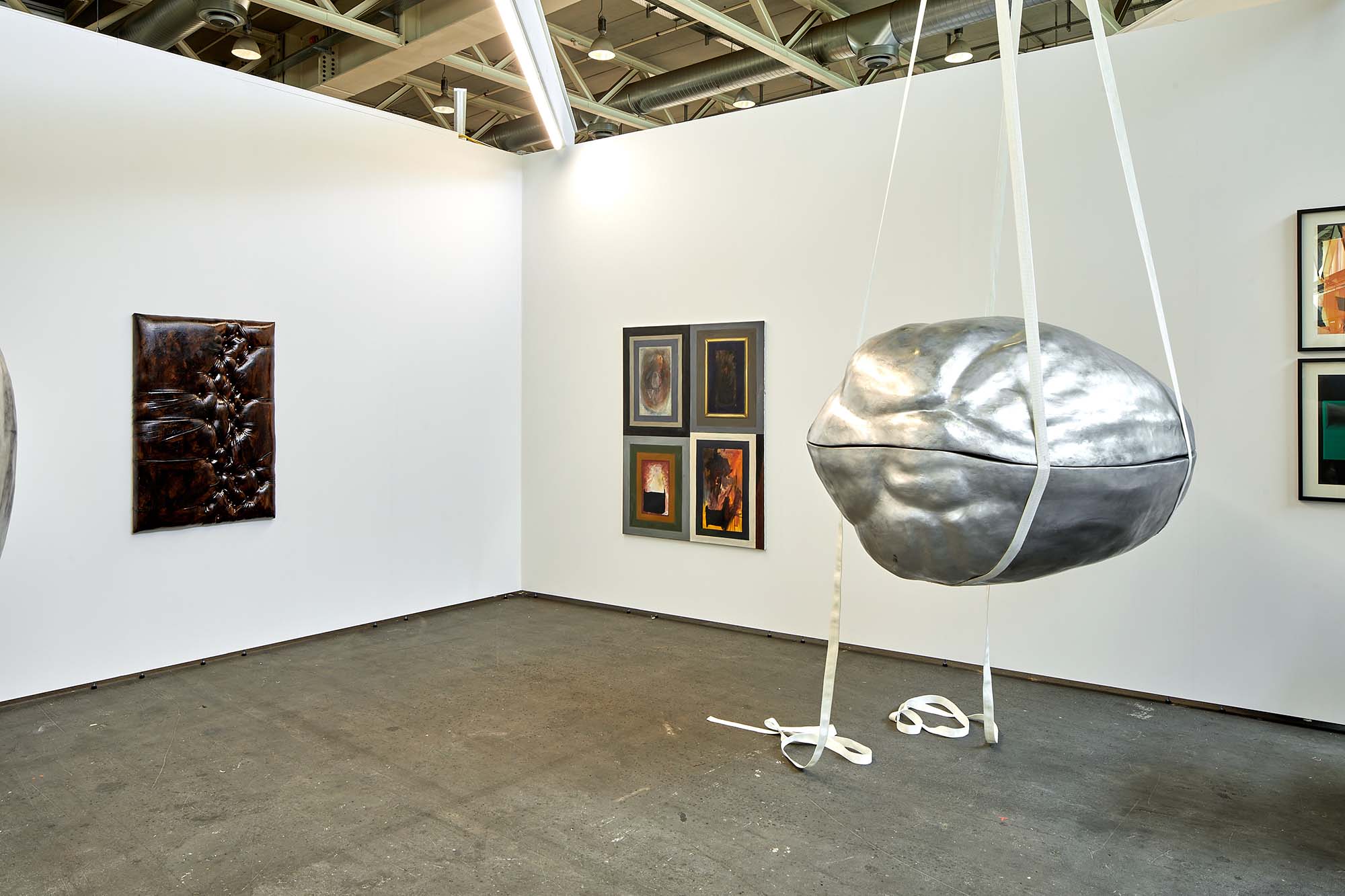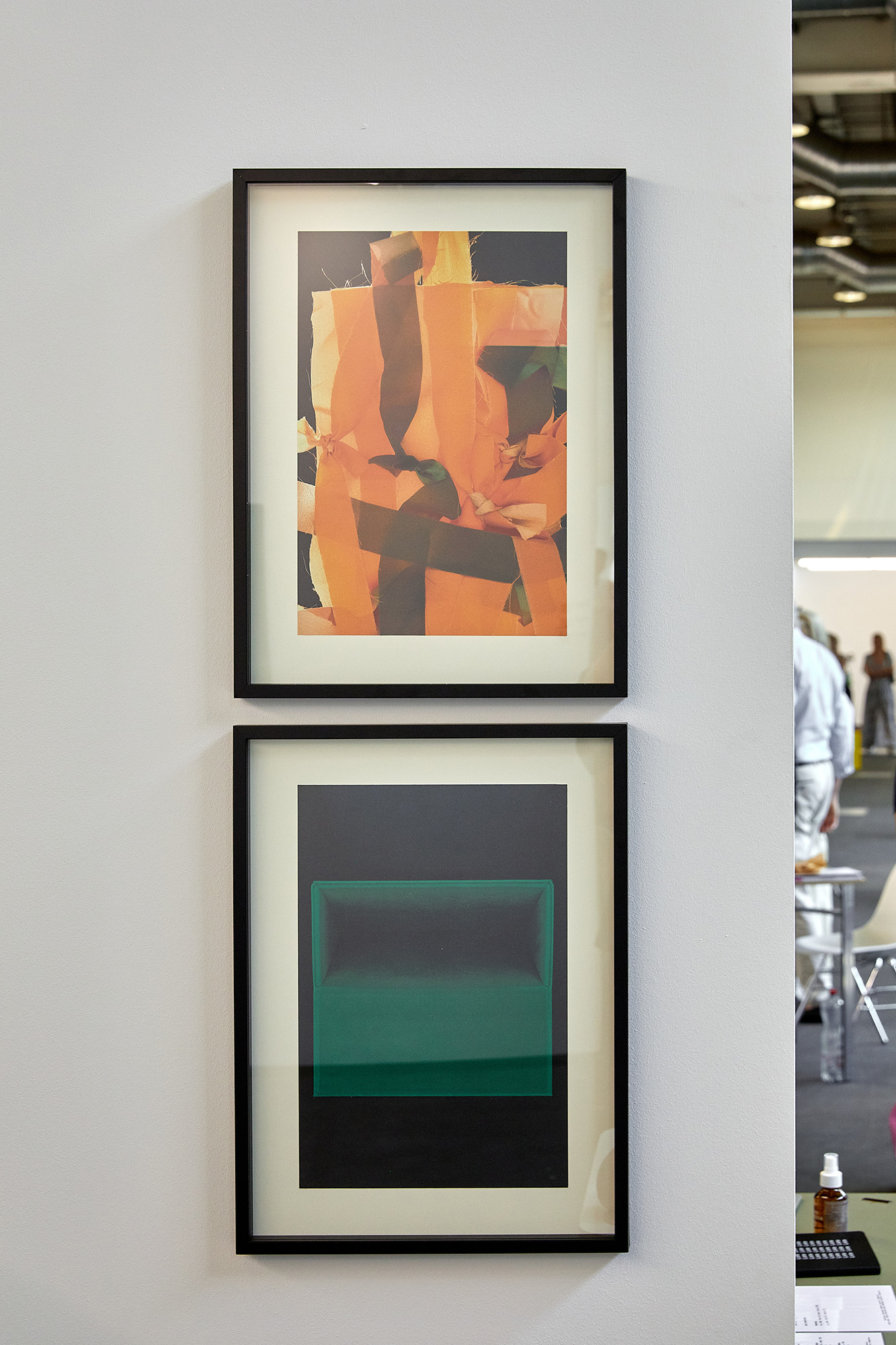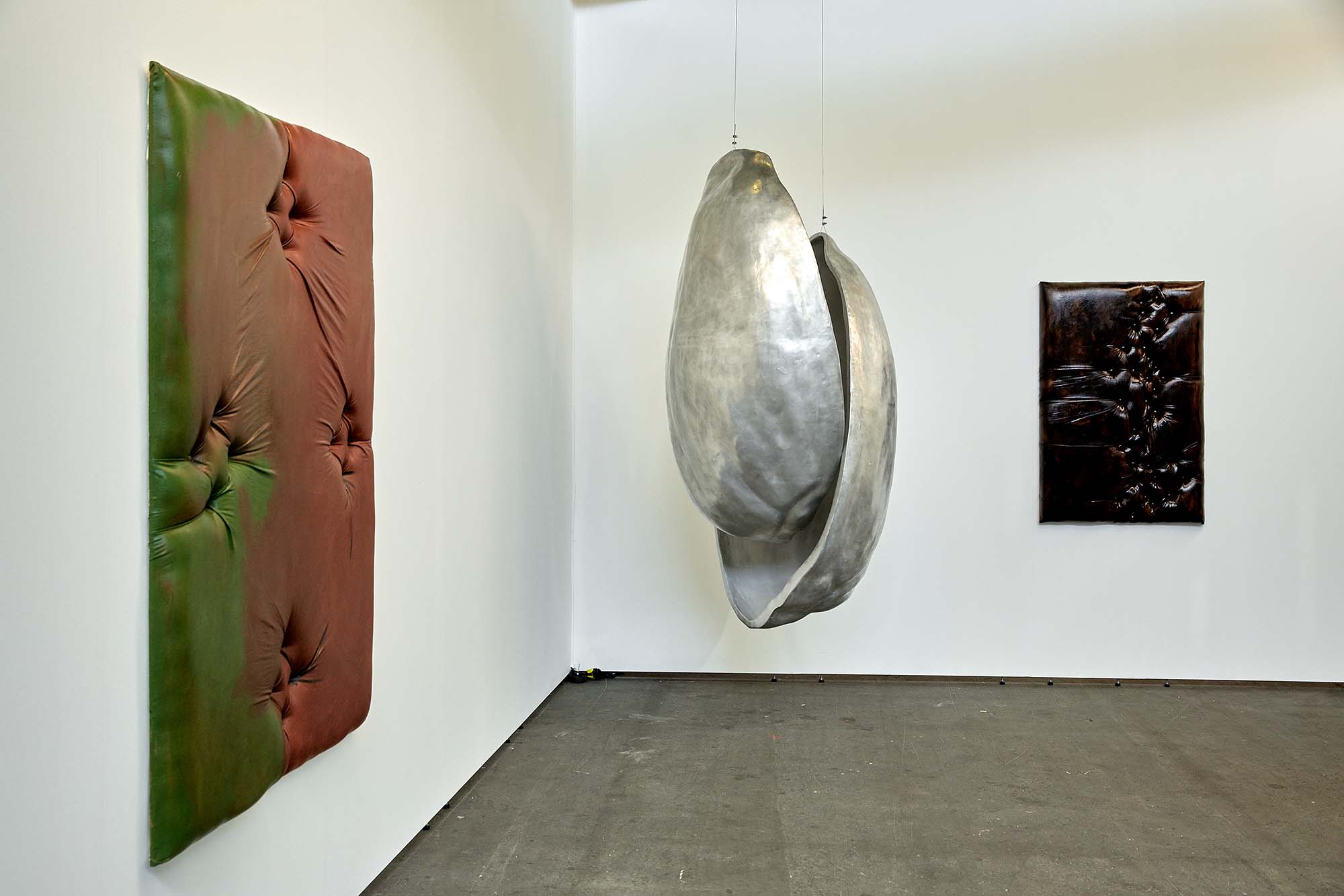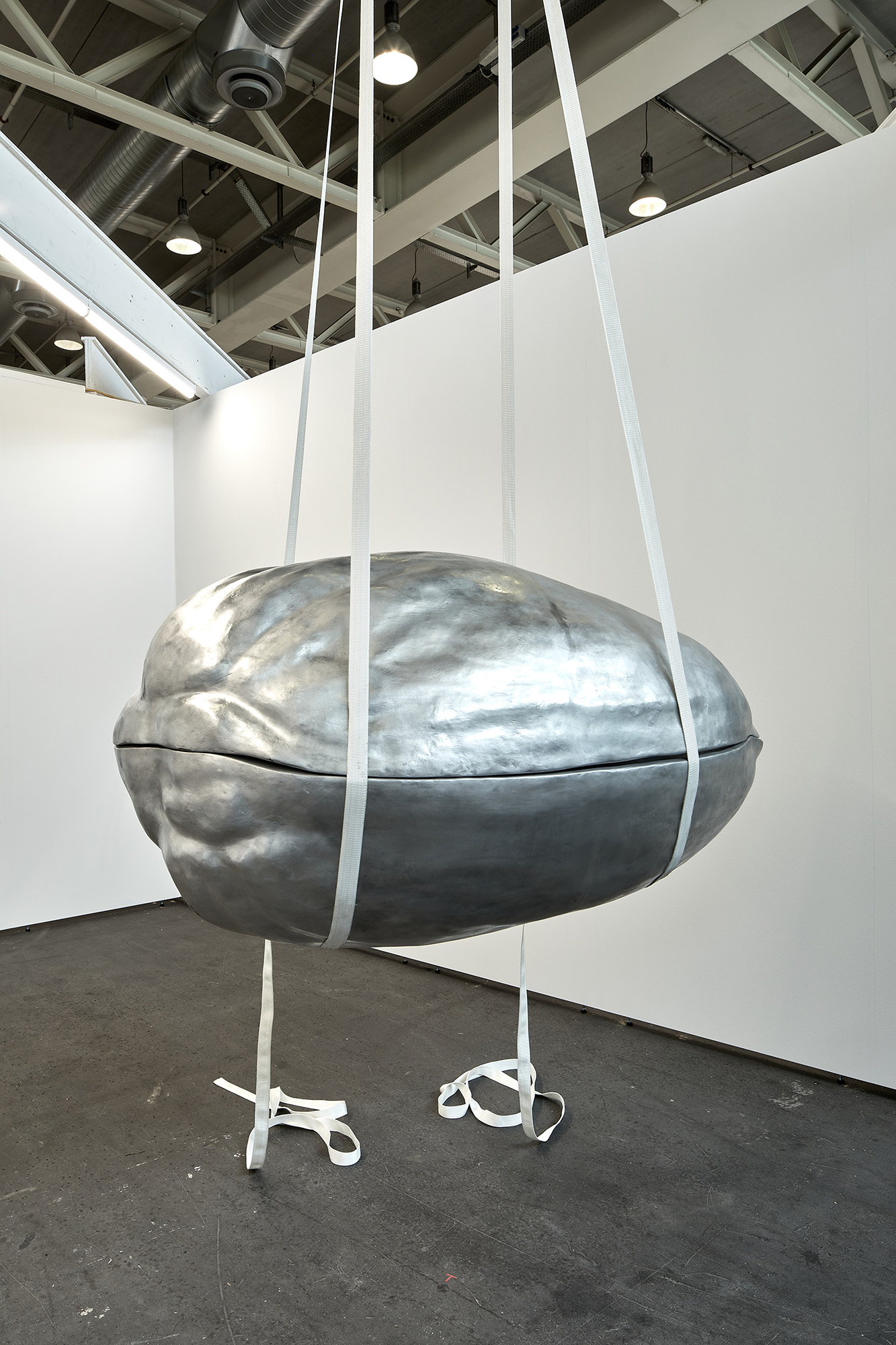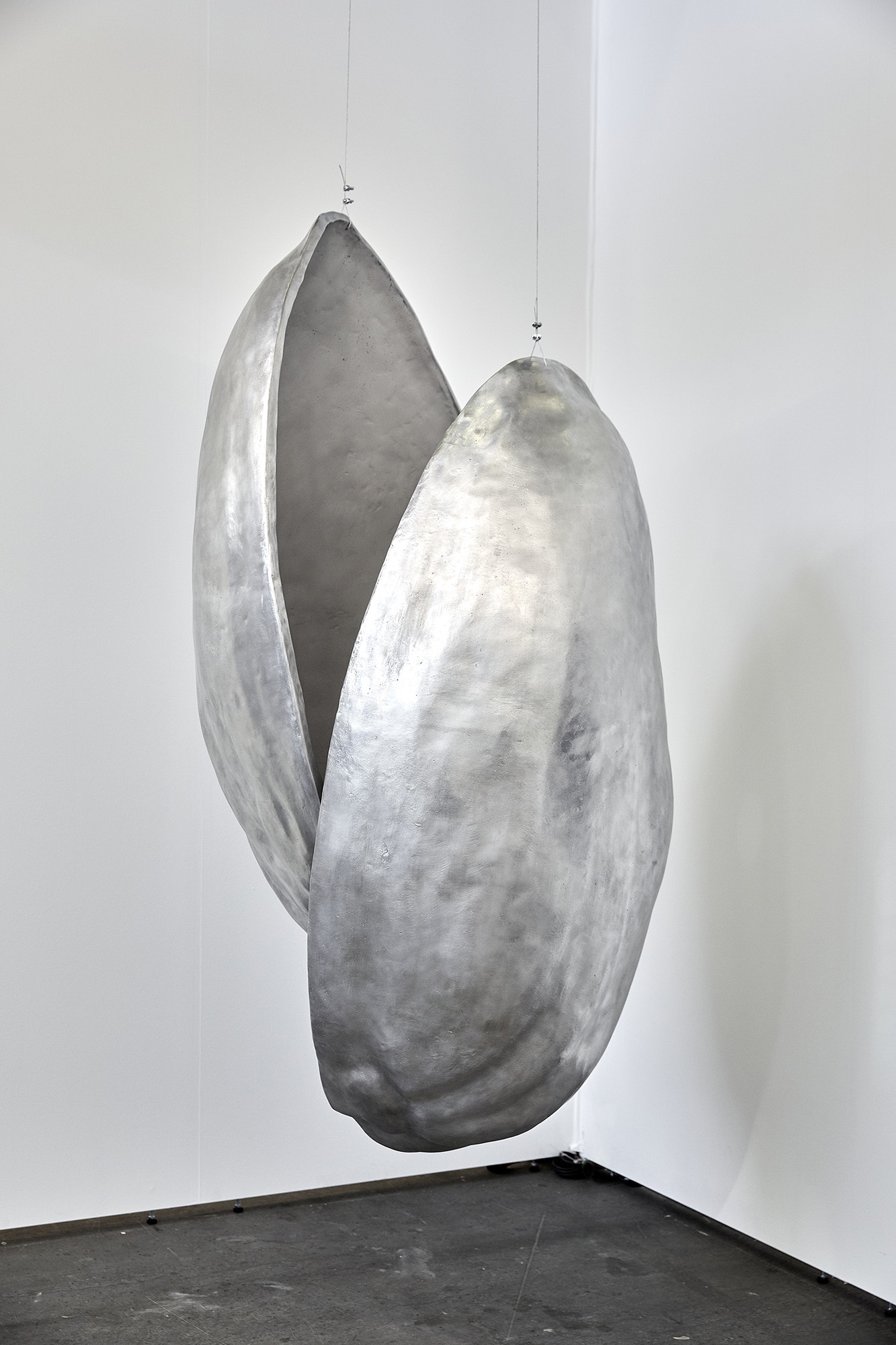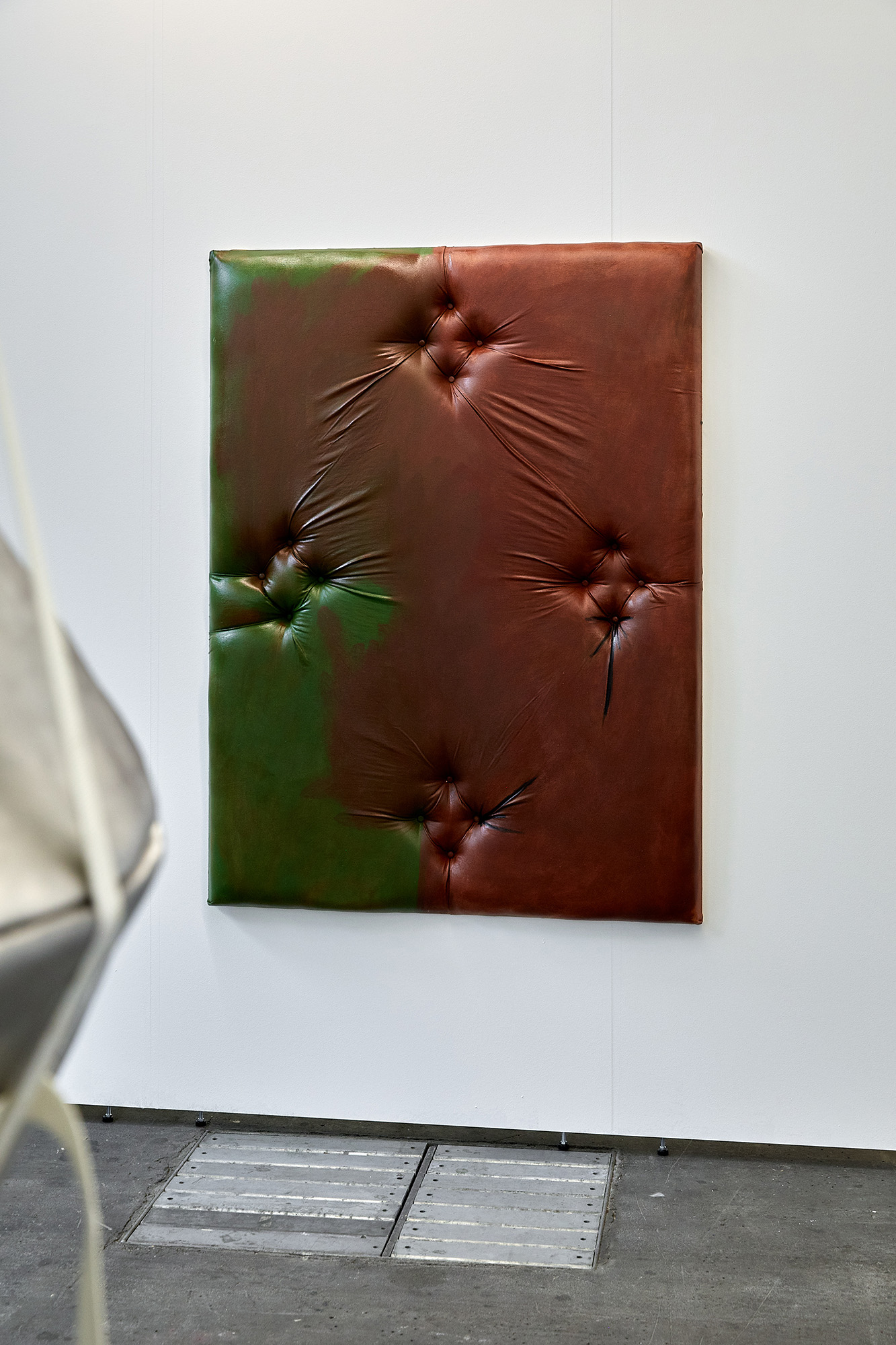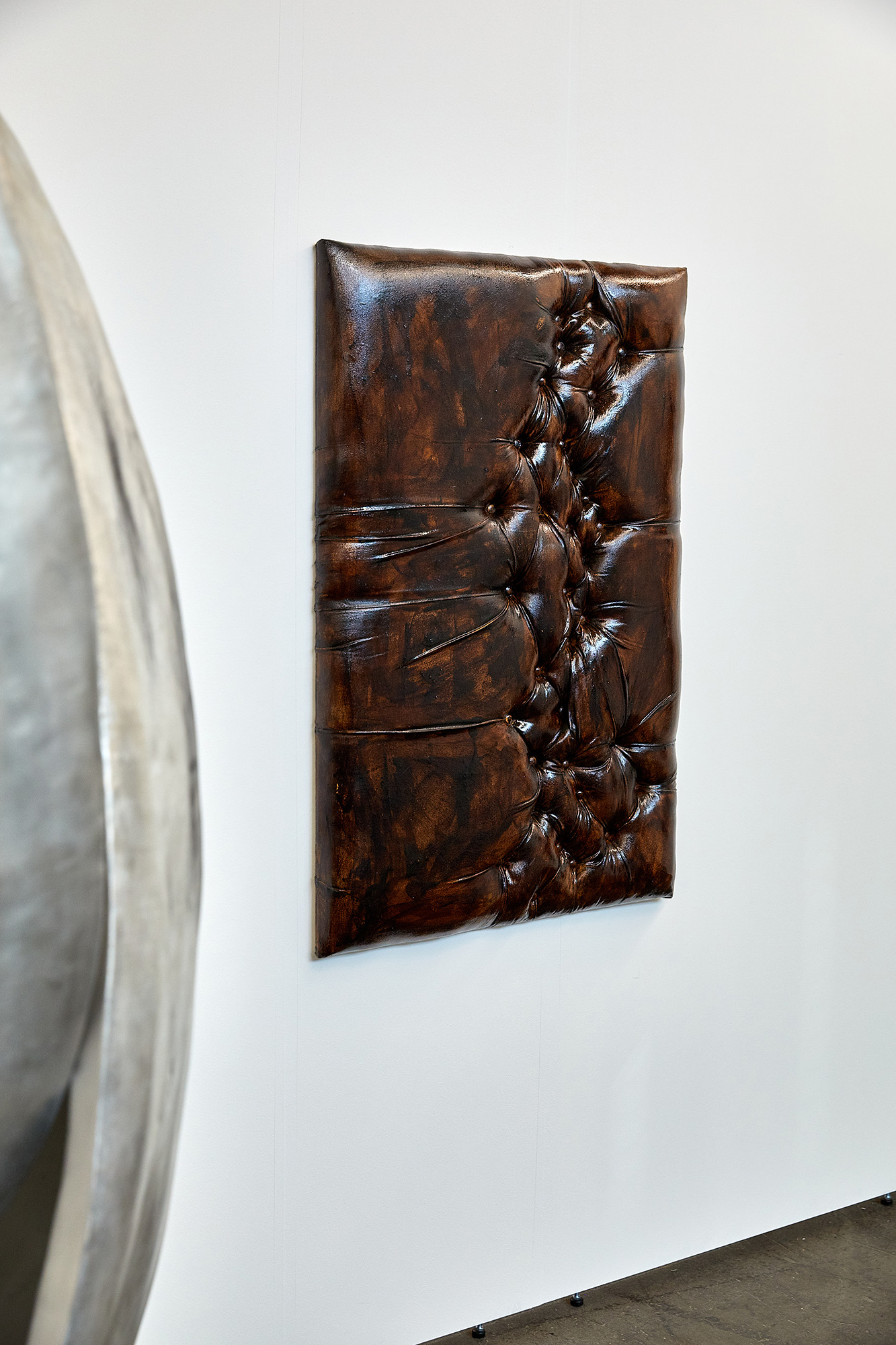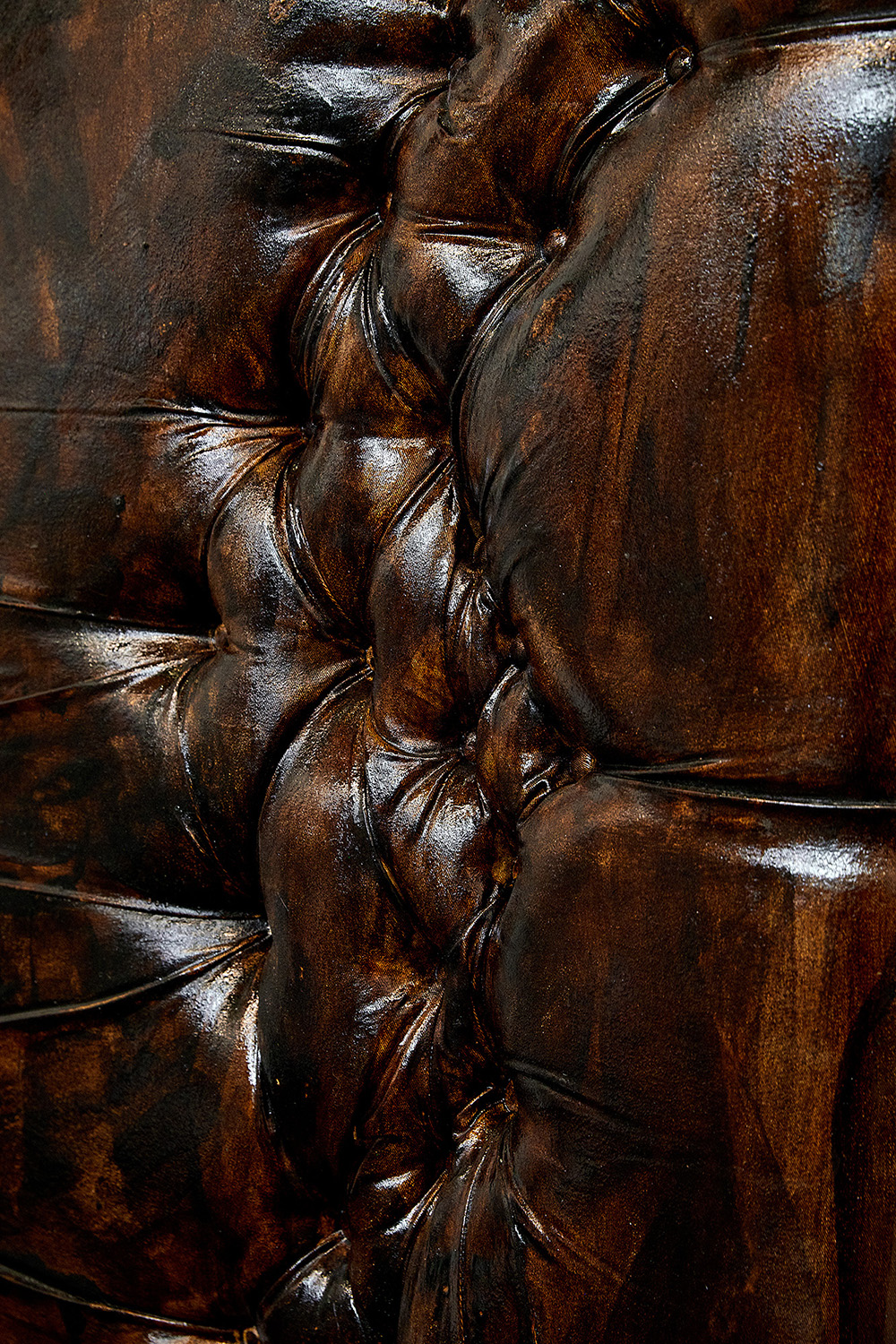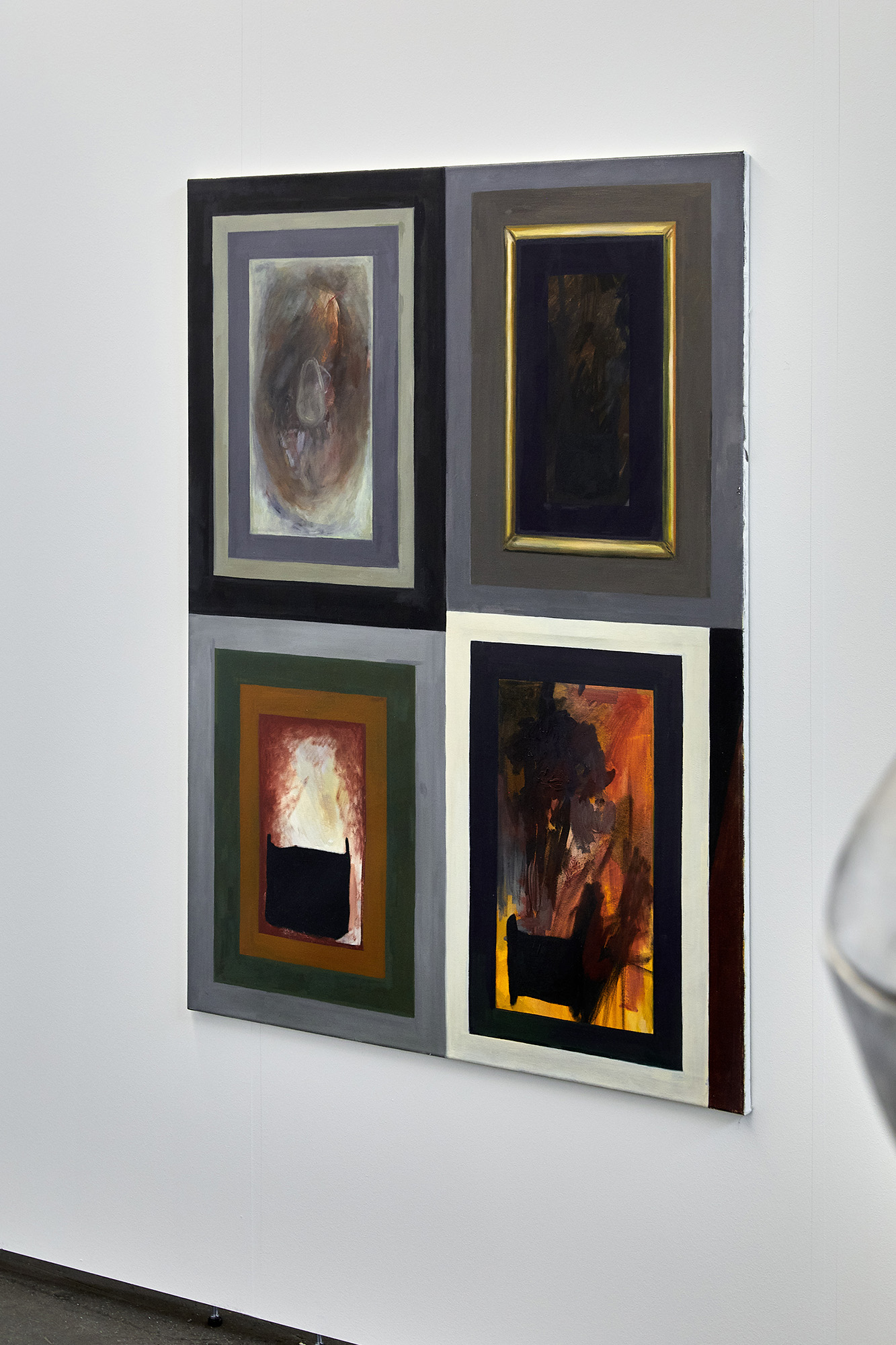Fair
Eugster || Belgrade’s booth at LISTE 2023 shows new works by Doruntina Kastrati (*1991, based in Kosovo) and Julija Zaharijevic (*1991, based in Vienna/Berlin). Both of their practices focus on the exceptional aspects of the mundane and matters of standard in a society divided by class.
Following up on her interests and themes of recent shows (Manifesta 14 in Kosovo, Life without Buildings at ETH Zurich and Art at Work at Moderna Galerija, Ljubljana), Doruntina Kastrati is weighing in on the discourse of Kosovo’s working-class and their social rights. This time, she works with a very particular context, informed by her mother’s and her workmates’ experiences of working long shifts in a Turkish delights factory. Their cases are an exemplary portrait of the realisation of living for being human, staying human; of the human body as a silent machine, as these people work in conditions that include non- contractual agreements made of minimum wages, illegal working hours, no benefits, and no social securities.
The objects that Doruntina proposes for Liste 2023 represent an aesthetic of a dual nature: one of simultaneous empathy and dissociation. The delights no longer foster a sentiment of sweetness, celebration or hospitality — rather, they turn into an active tool of commodified labour. The sculptures are human-size replicas of semi-open pistachios, nuts that are frequently used in production of Turkish delights, cast in aluminium and treated so that they invoke an empathic response in the viewer. The memory of taste speaks to our sentiment and fondness of sweetness, while the reflective metallic surface of the sculpture insinuates the bitter effect of alienating those who work hard to produce it. Extending the allegory of sweetness, the sculptures depict the inhumane that transpires in the intersection of the individual and collective, and exploration of the corporeal and the spiritual.
Julija Zaharijević harbours a profound interest in reality, but rather than asking what is real, she wonders why we bother with this subject at all. Her works, as we have seen at her show Oh No! The view at Georg Kargl Permanent in Vienna, present us with this doubt: visual illusions and references to real, unremarkable objects bring those very objects into a new situation, one where they need to perform in order to become important. To the questions she asks (why is reality important), one of the less obvious answers is: class, standard, vanity.
For her presentation at Liste 2023, Julija is exploring upholstery as a method of creation that subtly produces a display of difference between social classes and standards. The works are made on wooden boards using the deep button/capitoné upholstery method, originally used on Chesterfield sofas in the 18th and 19th century. Since the original sofas, the look of the leather upholstery was associated with status and luxury. Additionally, with their use in gentlemen’s clubs in England and a known affection for it by Sigmund Freund, they connote male authority figures, exclusion, images of power, wealth and colonialism. However, as is often the case with luxury objects, the broader, less affluent public wants to incorporate luxury objects into their homes, and cheaper dupes hit the market. This secondary market always appears as an adverse byproduct of the wealthy minority’s insistence on exclusion.
The abstract canvases from the series Poison have additional, irregular buttons, which break the otherwise known symmetry, adding an almost organic-looking element. The buttons resemble a skin condition, or bullet wounds, which in effect create a feeling that the artwork/luxurious object is almost being eaten by itself.
— Natalija Paunić
